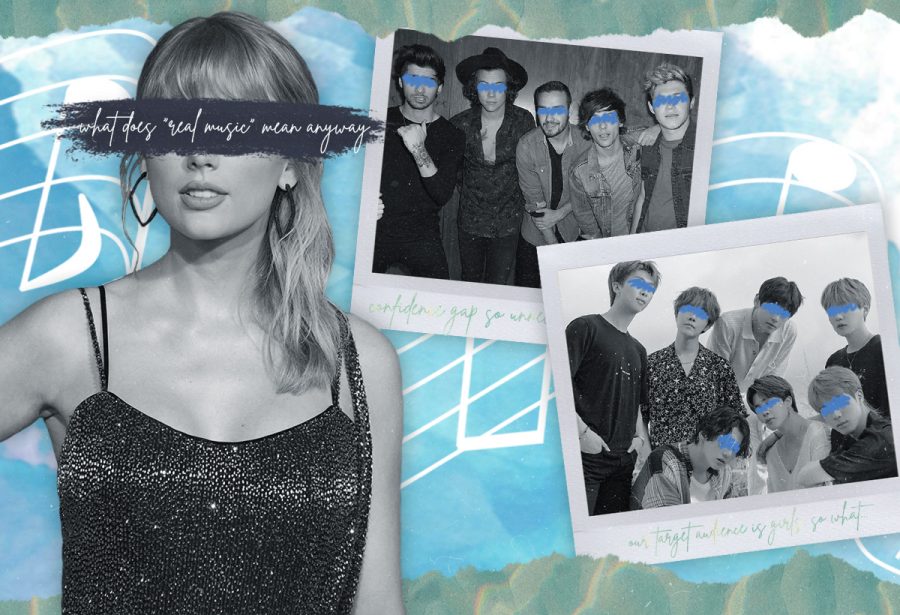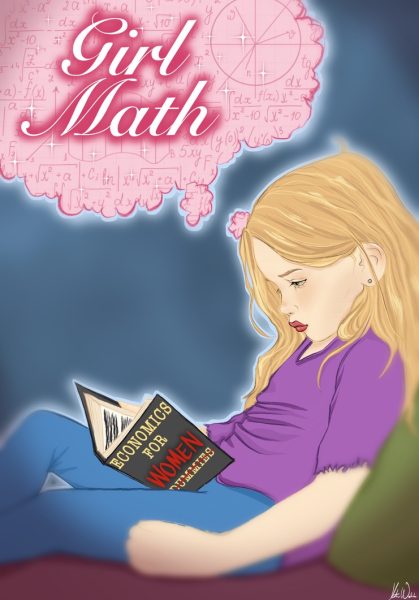More than Just Music Taste: Teen Girls’ Interests Over-scrutinized
“What sort of music do you listen to?”
This seems like an easy question to answer, yet a thousand different things run through my head as I decide the best way to answer. For example, if I were to say a genre of music that might not be mainstream or might be “targeted” to another group of people, then I’ll receive questions as to whether or not I even know what I am talking about. On the other hand, if I say something that plays on the radio then it is not taken seriously as being real music.
Regardless of how I respond, it feels as if there is no right answer.
I feel like, as a young woman, it is impossible to say that you like really anything without facing some sort of judgment. Getting the approval of others when you are honest about your personal tastes is rare – you’re either too basic for liking the kind of music or books liked by other girls, or you’re trying too hard for liking something that does not conform to the stereotypes of femininity.
In 2020, the only 2 albums to receive over 500,000 sales were Taylor Swift’s “Folklore” and “Map of the Soul: 7” by the Korean-pop band BTS, according to music news site Chart Data. One Direction was 1 of the most successful bands of the last decade, garnering over 48.8 million album sales in the 2010s.
So, some girls end up being cautious in how fervently or honest they are in expressing themselves because they don’t want to face judgment for it. When I was younger, I didn’t want to tell my guitar instructor that I wanted to play Taylor Swift songs instead of more rock-oriented songs because I was afraid that he wouldn’t think of her songs as “real music” and he wouldn’t take me seriously.
While the apparent success of all these cultural phenomenons is shown clear as day by the statistics above, these fandoms are often the butt of jokes on the internet. The fans of One Direction, Taylor Swift, and more are primarily composed of, but not limited to, teenage girls and young women.
I can’t help but feel that whenever young women express an interest in something that could be construed as basic or popular, their opinions are completely dismissed, invalidated, and not respected.
There are many artists that have become incredibly popular due to their fanbase of young women, but that is most of the time forgotten when another demographic of people, usually men, finally consider them “worthy” of praise and appreciation. Taylor Swift and her fan base of “Swifties” are prime examples of this. An incredibly talented musician and songwriter, Swift sells out large arena shows and has won 10 Grammy awards.
“Taylor’s fanbase is mainly women and teenage girls, leading to her not being taken seriously because anything a girl likes can be looked down upon until men like it,” said sophomore and swiftie Abbey Inzeo.
Inzeo has not experienced direct criticism for being a fan of Swift, but notices the opinions of others online, and refrains from being so open in their support of her.
Just because certain musicians produce songs that are “targeted” or “ meant” for girls should not equate to them being less serious as musicians. Nearly all musicians and pop culture phenomena cater to specific demographics of people that don’t face nearly the same amount of scrutiny as musicians with a young female target audience.
Yet, even when a young woman likes something that isn’t “targeted for her, they are still not taken seriously by others for it as well.
Sophomore Maddie Maestre said, “It seems like girls can’t have an opinion on anything without being critiqued or scrutinized. When I have said that I like a music artist I am often challenged and asked to ‘name 5 songs’ to somehow prove that I actually enjoy their music.”
Sophomore Evonne Xu said, “Unless BTS becomes liked by the mainstream, aka men, they’re not going to be taken seriously… Most of the time in the media [their fans] are seen as these crazy rabid fangirls; that translates onto BTS.”
Showcasing Xu’s point, The New Yorker described the female observers in the BTS crowd at the Billboard Music Awards as “going cuckoo, clutching themselves in a kind of hysterical rapture.”
Explored by Vogue magazine, the word “hysteria” has basically been linked to women for hundreds of years. This discourages young teenage girls from expressing themselves and saying what they think because they don’t want to be labeled as crazy.
For whatever reason, the internet is incredibly critical of young women for showcasing the slightest bit of genuine passion for anything. Perhaps these male authors are jealous because these young female fans are able to express themselves more openly than most.
Instead of bringing people down for what they like, let people enjoy themselves without judgment, critique, assessment. People talk about why the “Confidence Gap” between men and women still exists, as society and the media girls continuously critique young girls for having their own opinions, making girls more hesitant to be open about their personal interests.
It’s essential to stop these hurtful notions that invalidate teenage girls’ thoughts and opinions on things because just like everyone else, they deserve to be taken seriously too. It can begin with something as small as music preference, but girls should not have to worry about whether their interests are accepted by or please others.
Your donation will support the student journalists of Campolindo High School's The Claw. Your contribution will allow us to produce more issues and cover our annual website hosting costs.

Senior Isabelle Katz loves to learn and tell stories. Depth reporting is a passion of hers. “You have to execute the craft of story telling and let the...



